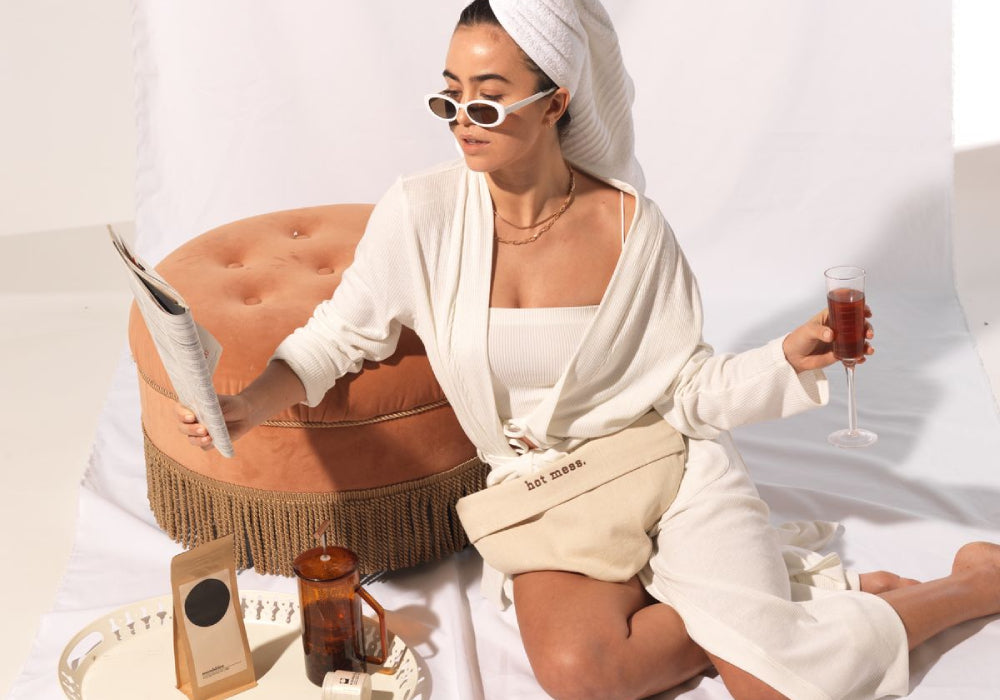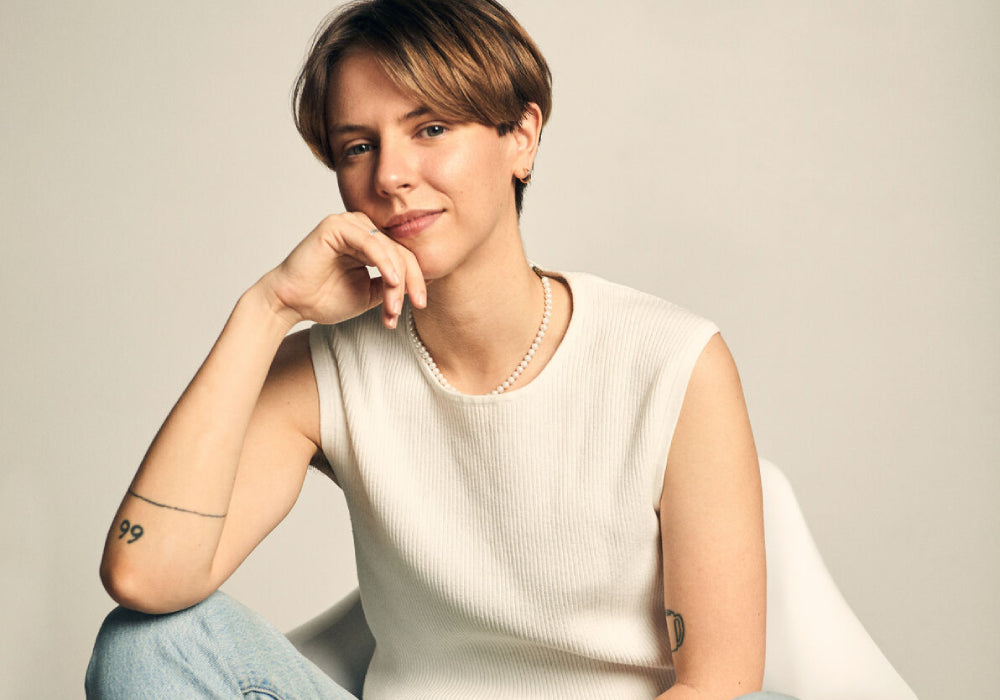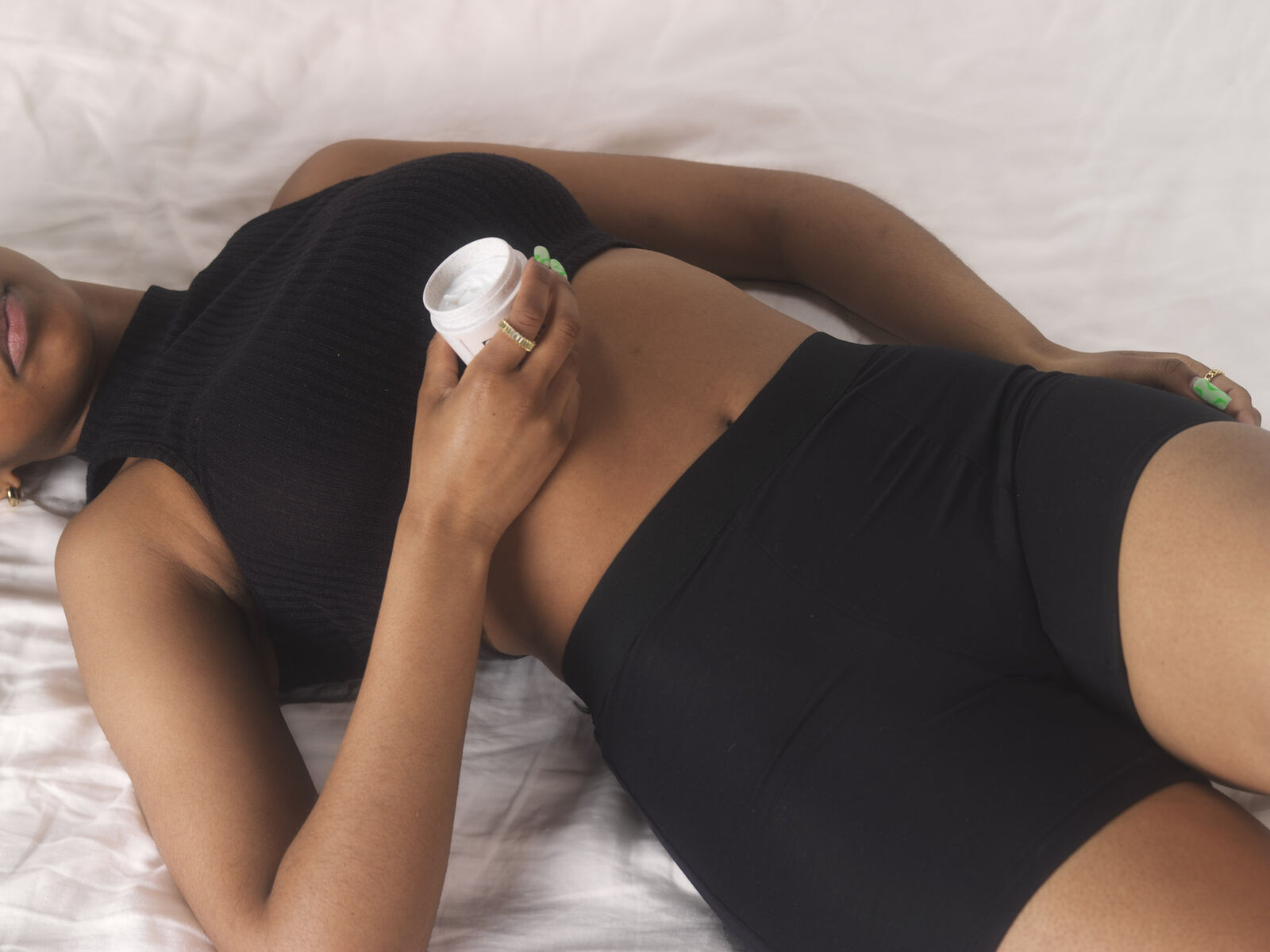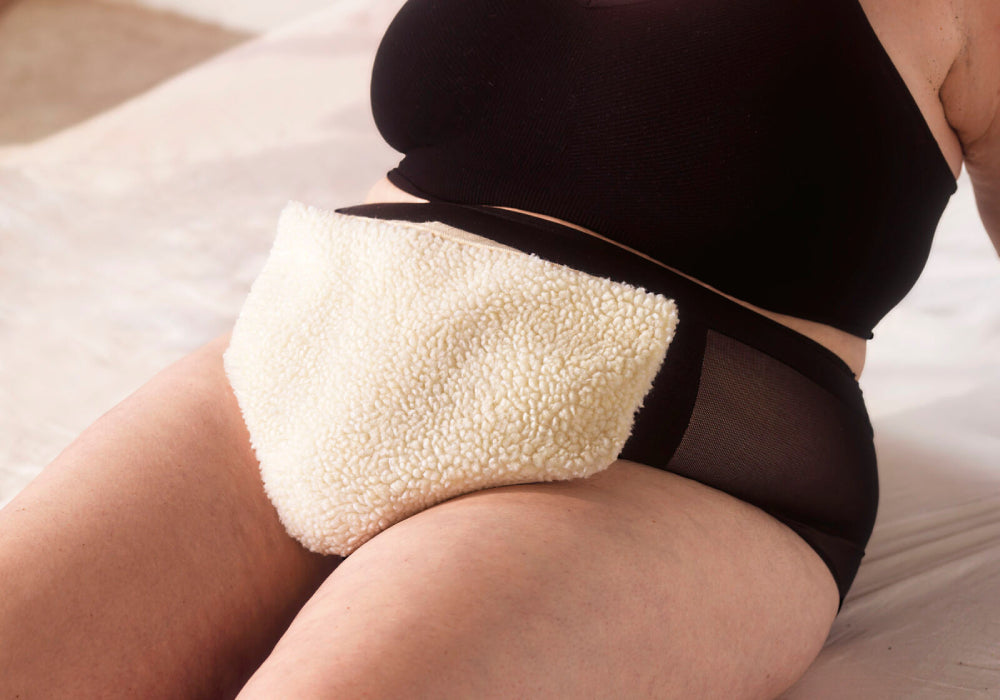The Founder Transforming Period Pain Into Period Pleasure
I was 9 years old the first time I went to the hospital for abdominal pain. I remember my mom telling me the doctor was going to ask if I had started my period yet and if I knew what that meant.
I didn't — but if this is what a period was, I knew I wanted absolutely no part of it. I had spent the previous evening doubled over in my bedroom, in tears, rocking back and forth in intense pain — an experience I would, unfortunately, become very familiar with.
For 15 years I went from doctor to gynecologist, to gastroenterologist, and back again trying to find answers and some kind of relief. Despite having a history of endometriosis in my family, I was told again and again it was "just" period pain — or maybe it was endometriosis but there wasn't anything they could do about it.
I was 13 the first time they put me on birth control. It didn't work but they insisted I just needed to find the right one. I spent the next 10 years on at least 10 different types of birth control, along with some combination of antidepressants and anti-anxieties to combat its side effects. None of it worked.
My entire adolescence was shaped by my experience with period pain and the shame that came with it. Shame for missing school, shame for not being able to walk anywhere, shame for not being able to perform consistently as an athlete, shame for having a period that prevented me from doing anything, shame for experiencing pain during sex.
Coaches told me it was because I didn't work out hard enough, teachers told me I was a lazy student, and friends told me it was normal. It was always my fault, something I was or wasn't doing or, worst of all, I was simply being dramatic.
As I grew up and into myself, I began to unravel all the shame that had built up in my body over the years. I came out, I found feminism, and I began to understand all the ways the world around me made me feel powerless and alone.
From a sexist medical system that dismisses women's pain as "hysteria" to a culture that believes women's suffering is inevitable, we are conditioned to believe that period pain is normal. When endometriosis — one of the most painful diseases in the world — can be regularly mistaken for period pain (one of the most common bodily functions in the world), something is very wrong.
Exhausted by the lack of options and support available, I began my deep dive into all the new research around chronic pain, somatic experiencing, and, unintentionally, the magic of period sex. For the first time in my life I found relief.
Imagine my surprise when I realized pleasure and embodiment could bring me more relief than any medication ever did. Don't get me wrong, there is a time and a place for medication — but there comes a point when pain becomes chronic and your central nervous system can no longer differentiate between good and bad sensations. Eventually, your pain pathways become so well-traveled that your brain can start to interpret all sensations as painful.
A few years further into my journey exploring pleasure as pain relief, I found myself working for a sports recovery company and had my second “aha” moment. Period cramps are muscle cramps; cramping of the uterus, cramping of the abdominal wall. Lower back pain and leg pain — it’s all muscle cramps.
When you get your period, your body releases a chemical called prostaglandins that causes the uterus to contract in order to shed its lining. Excess prostaglandins can cause cramping of the muscles around the uterus as well (including your bowels, which is why some people get diarrhea during their cycle). So, what if we took the science of muscle recovery and applied it to period pain? 
By combining the science of muscle recovery and the latest research on chronic pain, we developed period pain relief experiences that not only work to relieve pain in the moment but also work to change a person's relationship with period pain entirely.
We do this by infusing pain relieving ingredients into sensual delivery systems like baths, body oils, creams, body wraps, weighted aromatic heat pads, and more to make pain relief more effective. By adding a pleasure component, your body becomes engaged beyond just the experience of looking for pain relief. It presents an opportunity to engage the pleasure centers in your brain to help build new, less painful neural pathways for more holistic and long term relief.
We launched somedays in the spring of 2021 with a mission to radically change the way period pain is managed. With the largest and most comprehensive period pain relief line in North America, we are pioneering an entirely new category: period pleasure.
Somedays is created by and made for anyone who has ever felt dismissed, alone, or hopeless in their experience with period pain. It's a soft landing place for people to explore their relationship to pain, find community, and welcome pleasure into a part of their life where it maybe hasn’t been experienced.
For a long time, I believed period pain was something I would spend my entire life trying to escape. Since founding somedays, I'm able to welcome it with open arms and finally offer it the spa day it so deeply deserves.













